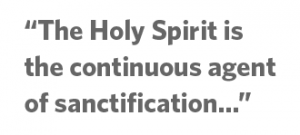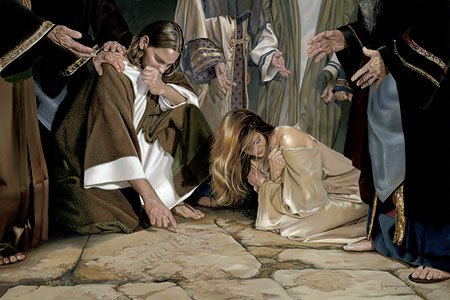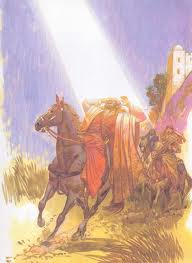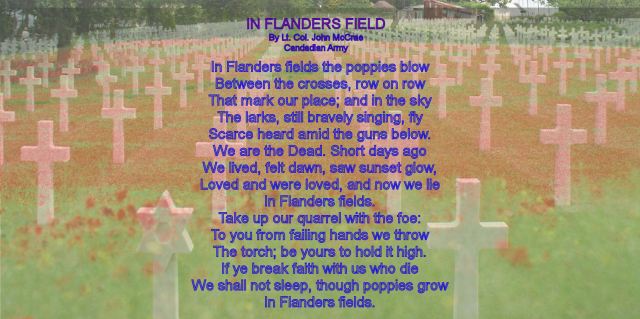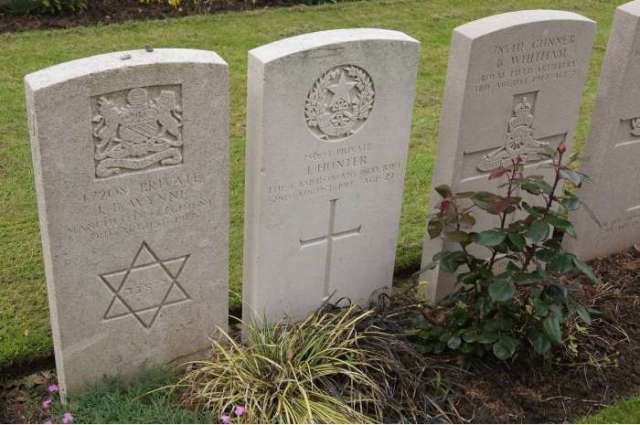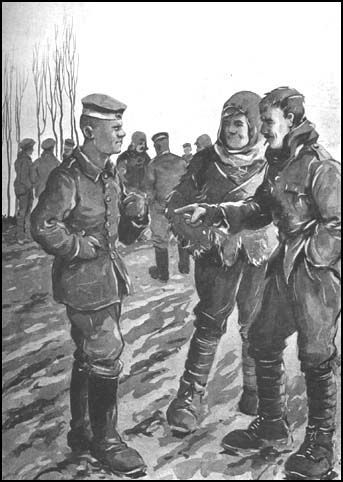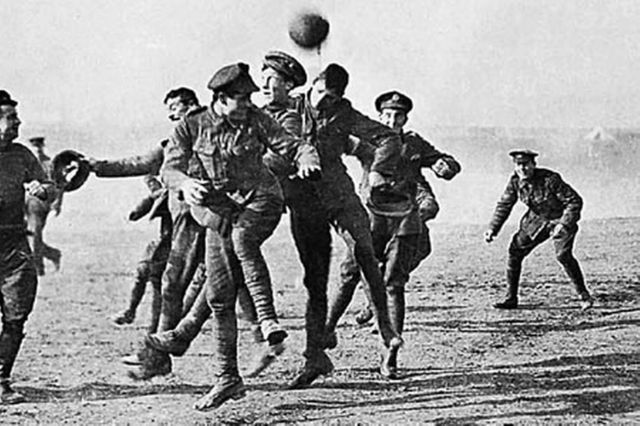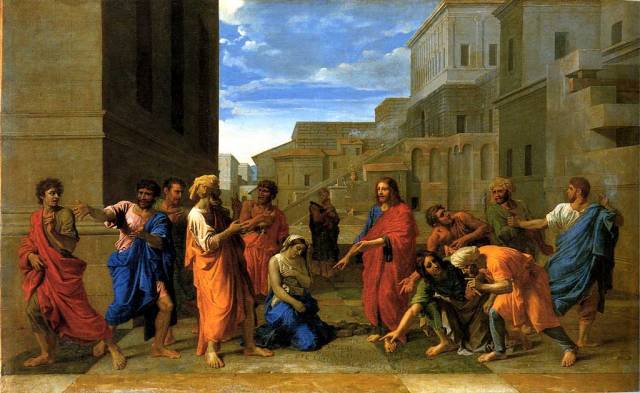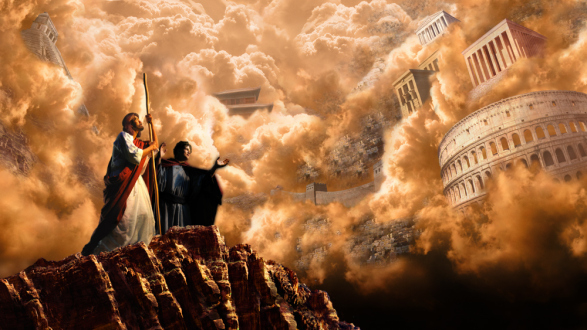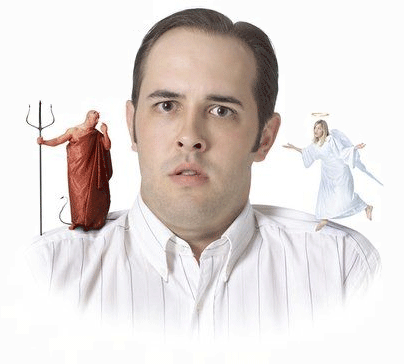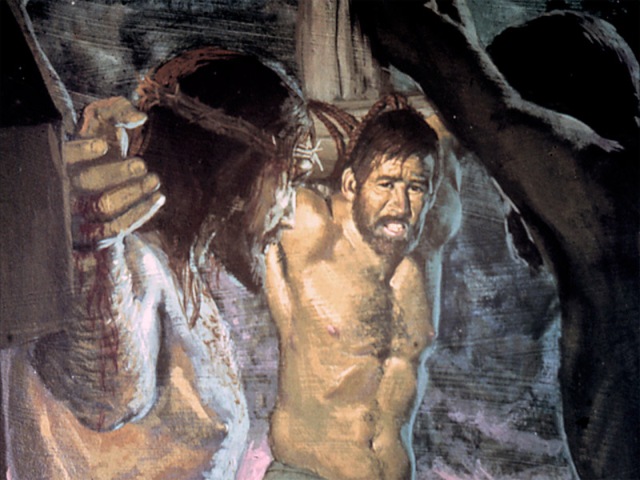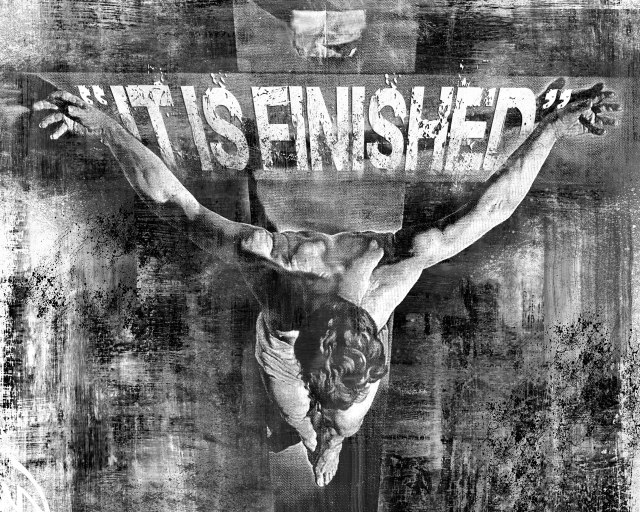


Bloor Lansdowne Christian Fellowship – BLCF Church, 1307 Bloor Street West, Toronto, ON.
Message for Sunday:
Not Casting the First Stone and Other Lessons of Love
© May 5, 2024, by Steve Mickelson
Based on Messages Shared at BLCF on November 18,2023,
September 11, 2022, October 3, 2021, and November 4, 2018
BLCF Bulletin November 4, 2018

Announcements and Call to Worship; Prayer
- from Tim Hackborn:
With heavy hearts, we announce the passing of Rosalie White on Friday afternoon, (May 3, 2024), surrounded by her family. Mom had a gift for storytelling and loved her family fiercely. She found joy in hearing about her grandchildren’s daily lives. As she moves on to the spirit world, we are grateful for the prayers and well wishes from those whose lives she touched. We will celebrate her life once arrangements have been made.

- from Pastor Steve:
Good Friend, Dedicated Volunteer, Sister-in-Christ, Church Board Member, Church Elder, and Caring Member of Her Family, Rosalie wore many hats well, but her friendship. good humour, and fierce dedication to her faith, family, friends, and the principles she loved will be sorely missed by us all. We look forward to the day Christ Jesus returns and we will be united again in His Kingdom.
Tithing and Prayers; Hymn #572: Praise God
Doxology (Praise God From Whom All Blessings Flow) Instrumental – https://www.youtube.com/watch?v=Mk4p3rihONU
Lauren Daigle – Love Like This (Lyrics) – https://youtu.be/U7eyU9EPGWo
Hymn #248: And Can It Be That I Should Gain – (Lyrics) – The Village Chapel Worship Team – https://youtu.be/JNzGNU5_yGU?t=5

Responsive Reading #662: Freedom from Sin (Romans 5 and 6)
This Sunday’s Message by Steve Mickelson:
‘Not Casting the First Stone and Other Lessons of Love’

Let us pray…
Welcome to BLCF Church, on this beautiful Sunday morning, May 5, 2024. Today is the first Sunday of the month, which means that it is Communion Sunday at BLCF, and for some Christians marks the arrival of their Easter.
I want to wish a Happy Orthodox Easter to Christians in Europe, Africa, the Middle East, and the rest of the world, who celebrate Easter according to the Julian calendar which places Easter at a later date than that observed by most Christians in the Western world. Our Easter and Orthodox Easter both occasionally fall on the same Sunday. In past years, 2010, 2011, 2014, and 2017, both Easters happened to fall on the same year, with 2034 being the next year they coincide. The preparations for the celebration of the Resurrection start on Holy Thursday, a day that commemorates the Last Supper of Jesus with the Apostles, followed by Good Friday, and Easter Sunday.
Jesus’ death on the cross is considered by all Christians to be a demonstration of both love and compassion to all of humanity by God’s Son, who was also identified in the Scriptures as the Prince of Peace. The Lord’s death and resurrection removed humanity’s judgment for sin, if they were willing to accept the gift of salvation, confess their sins, and by faith follow the guidance given by the Bible, the guidance of the Holy Spirit, and be willing to share the Gospel of Jesus unto the ends of the earth.
While Jesus’ sacrifice removed judgment for sin, which is death, from humanity, it did not remove sin. Today sin is any thought, word, or deed demonstrating the absence of love towards either God or a neighbour.
Some speculate that all the sadness, fear, anger, hurt, and death generated by the acts of war are examples of God’s anger, of His judgment. The answer to this speculation may be found in the Apostle Paul’s letter written to members of the Church in Rome:
Romans 5:1-11: Peace with God Through Faith
5 Therefore, since we have been justified by faith, we have peace with God through our Lord Jesus Christ. 2 Through him we have also obtained access by faith into this grace in which we stand, and we rejoice in hope of the glory of God. 3 Not only that, but we rejoice in our sufferings, knowing that suffering produces endurance, 4 and endurance produces character, and character produces hope, 5 and hope does not put us to shame, because God’s love has been poured into our hearts through the Holy Spirit who has been given to us.
6 For while we were still weak, at the right time Christ died for the ungodly. 7 For one will scarcely die for a righteous person—though perhaps for a good person one would dare even to die— 8 but God shows his love for us in that while we were still sinners, Christ died for us. 9 Since, therefore, we have now been justified by his blood, much more shall we be saved by him from the wrath of God. 10 For if while we were enemies we were reconciled to God by the death of his Son, much more, now that we are reconciled, shall we be saved by his life. 11 More than that, we also rejoice in God through our Lord Jesus Christ, through whom we have now received reconciliation.
The above letter begs the question: If God is an angry God, who wants to inflict His judgment on humanity by ways of war, violence, and other such horrific events, then why send His Son to die for our sins, and why send us the Holy Spirit of God to comfort us for all eternity?
If the disaster of wars and violence is not the judgment of God, then who is responsible for all the death and destruction we are witnessing throughout the world today? Probably the same one tempted Jesus for forty days as we read in Chapter 4 of Luke’s Gospel:
4 And Jesus, full of the Holy Spirit, returned from the Jordan and was led by the Spirit in the wilderness 2 for forty days, being tempted by the devil. And he ate nothing during those days. And when they were ended, he was hungry. 3 The devil said to him, “If you are the Son of God, command this stone to become bread.” 4 And Jesus answered him, “It is written, ‘Man shall not live by bread alone.’” 5 And the devil took him up and showed him all the kingdoms of the world in a moment of time, 6 and said to him, “To you I will give all this authority and their glory, for it has been delivered to me, and I give it to whom I will. 7 If you, then, will worship me, it will all be yours.” 8 And Jesus answered him, “It is written,
“‘You shall worship the Lord your God,
and him only shall you serve.’”
9 And he took him to Jerusalem and set him on the pinnacle of the temple and said to him, “If you are the Son of God, throw yourself down from here, 10 for it is written,
“‘He will command his angels concerning you,
to guard you,’
11 and
“‘On their hands they will bear you up,
lest you strike your foot against a stone.’”
12 And Jesus answered him, “It is said, ‘You shall not put the Lord your God to the test.’” 13 And when the devil had ended every temptation, he departed from him until an opportune time.
The devil likes to tempt any who believe in the Resurrected Christ, but just as the Lord resisted temptation with the aid of the Holy Spirit, believers may rely on the Spirit to deny the devil any success in times of opportunity, where people act out against others because of a sinful nature.

In John 8, verses 1-11, we have an account of how the scribes and Pharisees brought a woman, caught in the act of adultery, asking Jesus how they should deal with her crime, as the Law stipulated death by stoning. This was intended to be not only a test of Jesus’ knowledge of Hebrew Law and the consequences one may expect for violating it. Let us begin today’s lesson by reading this passage from Chapter 8 of John’s Gospel:
John 8:1-11 (ESV)

8 1 but Jesus went to the Mount of Olives. 2 Early in the morning he came again to the temple. All the people came to him, and he sat down and taught them. 3 The scribes and the Pharisees brought a woman who had been caught in adultery, and placing her in the midst 4 they said to him, “Teacher, this woman has been caught in the act of adultery. 5 Now in the Law, Moses commanded us to stone such women. So what do you say?” 6 This they said to test him, that they might have some charge to bring against him. Jesus bent down and wrote with his finger on the ground. 7 And as they continued to ask him, he stood up and said to them, “Let him who is without sin among you be the first to throw a stone at her.” 8 And once more he bent down and wrote on the ground.9 But when they heard it, they went away one by one, beginning with the older ones, and Jesus was left alone with the woman standing before him. 10 Jesus stood up and said to her, “Woman, where are they? Has no one condemned you?” 11 She said, “No one, Lord.” And Jesus said, “Neither do I condemn you; go, and from now on sin no more.”
These eleven verses, from the eighth chapter of John’s Gospel, provide us with a wealth of knowledge and understanding of how the violation of the Law, in this case, the seventh of the ten itemized in Exodus 20. In this case Exodus 20:14, 14 “You shall not commit adultery.
The woman had broken the Law and the scribes, Pharisees, and others gathered expected a pronouncement of death to the woman. This was the same judgment that the people of Israel expected when Moses brought the Laws from God down from the mountain, Exodus 20:18-21 (ESV):

18 Now when all the people saw the thunder and the flashes of lightning and the sound of the trumpet and the mountain smoking, the people were afraid[a] and trembled, and they stood far off 19 and said to Moses, “You speak to us, and we will listen; but do not let God speak to us, lest we die.” 20 Moses said to the people, “Do not fear, for God has come to test you, that the fear of him may be before you, that you may not sin.”21 The people stood far off, while Moses drew near to the thick darkness where God was.
Footnotes: a. Exodus 20:18 Samaritan, Septuagint, Syriac, Vulgate; Masoretic Text the people saw
These Laws came from God to instill a respect for God’s ordinances, and an avoidance of sin by the people, so as to not have Him render judgment upon them. But the people feared that if they heard God speak to them, they would surely die. The Law was intended to guide the people on a righteous path of behaviour, to demonstrate their love for God and for others.
In the case of Jesus and the adulteress, Jesus indicated that no man or woman is innocent of sin, and therefore none are qualified to act as judge and executioner. That is God’s privy, and as such, He alone has the authority to render judgment or its consequences upon sinners. This does not mean that there won’t be any judgment for violation of the Law, which will be rendered by God, alone.
Did scribes and Pharisees take the words of our Lord to heart? Apparently not, as we see the actions taken against the Apostle Stephen, whom Christian scholars considered to be the first Christian martyr, as we see in this account taken from Chapter 7 of the Acts of the Apostles:
Acts 7:54-60 (ESV): The Stoning of Stephen

54 Now when they heard these things they were enraged, and they ground their teeth at him. 55 But he, full of the Holy Spirit, gazed into heaven and saw the glory of God, and Jesus standing at the right hand of God. 56 And he said, “Behold, I see the heavens opened, and the Son of Man standing at the right hand of God.” 57 But they cried out with a loud voice and stopped their ears and rushed together[a] at him. 58 Then they cast him out of the city and stoned him. And the witnesses laid down their garments at the feet of a young man named Saul. 59 And as they were stoning Stephen, he called out, “Lord Jesus, receive my spirit.” 60 And falling to his knees he cried out with a loud voice, “Lord, do not hold this sin against them.” And when he had said this, he fell asleep.
Footnotes: a. Acts 7:57 Or rushed with one mind
Though Jesus had been sent to pay the penalty for sin, the human tendency to sin had not been eliminated. Though Stephen was full of the Holy Spirit, in that he saw Jesus standing at the right-hand side of God, the Father, the lord did not intervene. Stephen’s last words before he died were a plea to the Lord not to hold the sin of murder against them. You may note that watching the garments of the murderous mob was a young man named Saul, better known as Saul of Tarsus.
Saul’s testimony on the matter is recorded in Acts 22:1-21:
Acts 22:1-21 (ESV)

22 “Brothers and fathers, hear the defense that I now make before you.”
2 And when they heard that he was addressing them in the Hebrew language,[a] they became even more quiet. And he said:
3 “I am a Jew, born in Tarsus in Cilicia, but brought up in this city, educated at the feet of Gamaliel[b] according to the strict manner of the law of our fathers, being zealous for God as all of you are this day. 4 I persecuted this Way to the death, binding and delivering to prison both men and women, 5 as the high priest and the whole council of elders can bear me witness. From them I received letters to the brothers, and I journeyed toward Damascus to take those also who were there and bring them in bonds to Jerusalem to be punished.
6 “As I was on my way and drew near to Damascus, about noon a great light from heaven suddenly shone around me. 7 And I fell to the ground and heard a voice saying to me, ‘Saul, Saul, why are you persecuting me?’ 8 And I answered, ‘Who are you, Lord?’ And he said to me, ‘I am Jesus of Nazareth, whom you are persecuting.’ 9 Now those who were with me saw the light but did not understand[c] the voice of the one who was speaking to me. 10 And I said, ‘What shall I do, Lord?’ And the Lord said to me, ‘Rise, and go into Damascus, and there you will be told all that is appointed for you to do.’ 11 And since I could not see because of the brightness of that light, I was led by the hand by those who were with me, and came into Damascus.
12 “And one Ananias, a devout man according to the law, well spoken of by all the Jews who lived there, 13 came to me, and standing by me said to me, ‘Brother Saul, receive your sight.’ And at that very hour I received my sight and saw him. 14 And he said, ‘The God of our fathers appointed you to know his will, to see the Righteous One and to hear a voice from his mouth; 15 for you will be a witness for him to everyone of what you have seen and heard. 16 And now why do you wait? Rise and be baptized and wash away your sins, calling on his name.’
17 “When I had returned to Jerusalem and was praying in the temple, I fell into a trance 18 and saw him saying to me, ‘Make haste and get out of Jerusalem quickly, because they will not accept your testimony about me.’ 19 And I said, ‘Lord, they themselves know that in one synagogue after another I imprisoned and beat those who believed in you. 20 And when the blood of Stephen your witness was being shed, I myself was standing by and approving and watching over the garments of those who killed him.’ 21 And he said to me, ‘Go, for I will send you far away to the Gentiles.’”
Footnotes: a. Acts 22:2 Or the Hebrew dialect (probably Aramaic) b.Acts 22:3 Or city at the feet of Gamaliel, educated c. Acts 22:9 Or hear with understanding
We see that before his conversion Saul had busied himself by rounding up and persecuting Christians. In the process of one of the first persecutions, Saul witnessed Stephen’s death by stoning while he stood by watching over the garments of the members of the crowd who killed the Apostle.
But why was there no judgment from God against Saul or the mob who had murdered Stephen? God had no plans for members of the mob in general, but he did have plans for Saul, whose name would be changed to Paul, after his conversion. We see the degree of conviction demonstrated in Paul’s testimony, expressed in the following Epistle addressed by the Apostle to members of the Church in Rome, see Romans 10:9-10:
Romans 10:9-10 (ESV)

9 because, if you confess with your mouth that Jesus is Lord and believe in your heart that God raised him from the dead, you will be saved.10 For with the heart one believes and is justified, and with the mouth one confesses and is saved.
Paul said that salvation comes to those who confess that Jesus is Lord, whom God raised from the dead. This confession comes not from a fear of judgment by God, but a belief in the heart that Jesus died and was raised from the dead. We know from last week’s lesson, that the heart is associated with the intangible aspect of our beliefs, such as love, faith, and hope. With this belief, comes the tangible response of confession of our belief that while we were yet sinners, Christ died for our sins. And from that expression of faith, God will respond to the tangible sacrifice made by His Son on the cross with the intangible actions of our own justification and salvation through Christ, which in turn leads to the tangible actions of our own resurrection and granted eternal life.

All of God’s actions come as an expression of God’s love for us and our love for Him. For only He is able to make manifest the tangible from the intangible, merely by His own Word. But what does the Bible say should be the focus of our time and attention? We find the answer in Paul’s Epistle to the people in the church of Philippi, Philippians 4:4-7 (ESV):
4 Rejoice in the Lord always; again I will say, rejoice.5 Let your gentleness be known to everyone. The Lord is at hand;6 do not be anxious about anything, but in everything by prayer and supplication with thanksgiving let your requests be made known to God.7 And the peace of God, which surpasses all understanding, will guard your hearts and your minds in Christ Jesus.
14 For this reason I bow my knees before the Father, 15 from whom every family[a] in heaven and on earth is named, 16 that according to the riches of his glory he may grant you to be strengthened with power through his Spirit in your inner being, 17 so that Christ may dwell in your hearts through faith—that you, being rooted and grounded in love, 18 may have strength to comprehend with all the saints what is the breadth and length and height and depth, 19 and to know the love of Christ that surpasses knowledge, that you may be filled with all the fullness of God.
Let us pray…
Communion:
Communion Music Special – Lauren Daigle – “We Will Not Forget” (Lyric Video) – https://youtu.be/izeZa9wx8wA?si=oNXu2rGTLWiZ_NwL
Matthew 26:26-29 ESV – Institution of the Lord’s Supper
26 Now as they were eating, Jesus took bread, and after blessing it broke it and gave it to the disciples, and said, “Take, eat; this is my body.” 27 And he took a cup, and when he had given thanks he gave it to them, saying, “Drink of it, all of you, 28 for this is my blood of the[a] covenant, which is poured out for many for the forgiveness of sins. 29 I tell you I will not drink again of this fruit of the vine until that day when I drink it new with you in my Father’s kingdom.”
Footnotes: Matthew 26:28 Some manuscripts insert new

Music Special: I Won’t Let Go – (Lyrics With Bible Verse) Rascal Flatts- https://youtu.be/qA0YKJ0_Ivk
Benediction Music Special: In Jesus’ Name (God of Possible) – Katy Nichole – Lyric Video – https://youtu.be/R84PqRdZ7_Y
Benediction – (1 Timothy 1:17):
To the King of the ages, immortal, invisible, the only God, be honor and glory forever and ever. Amen










